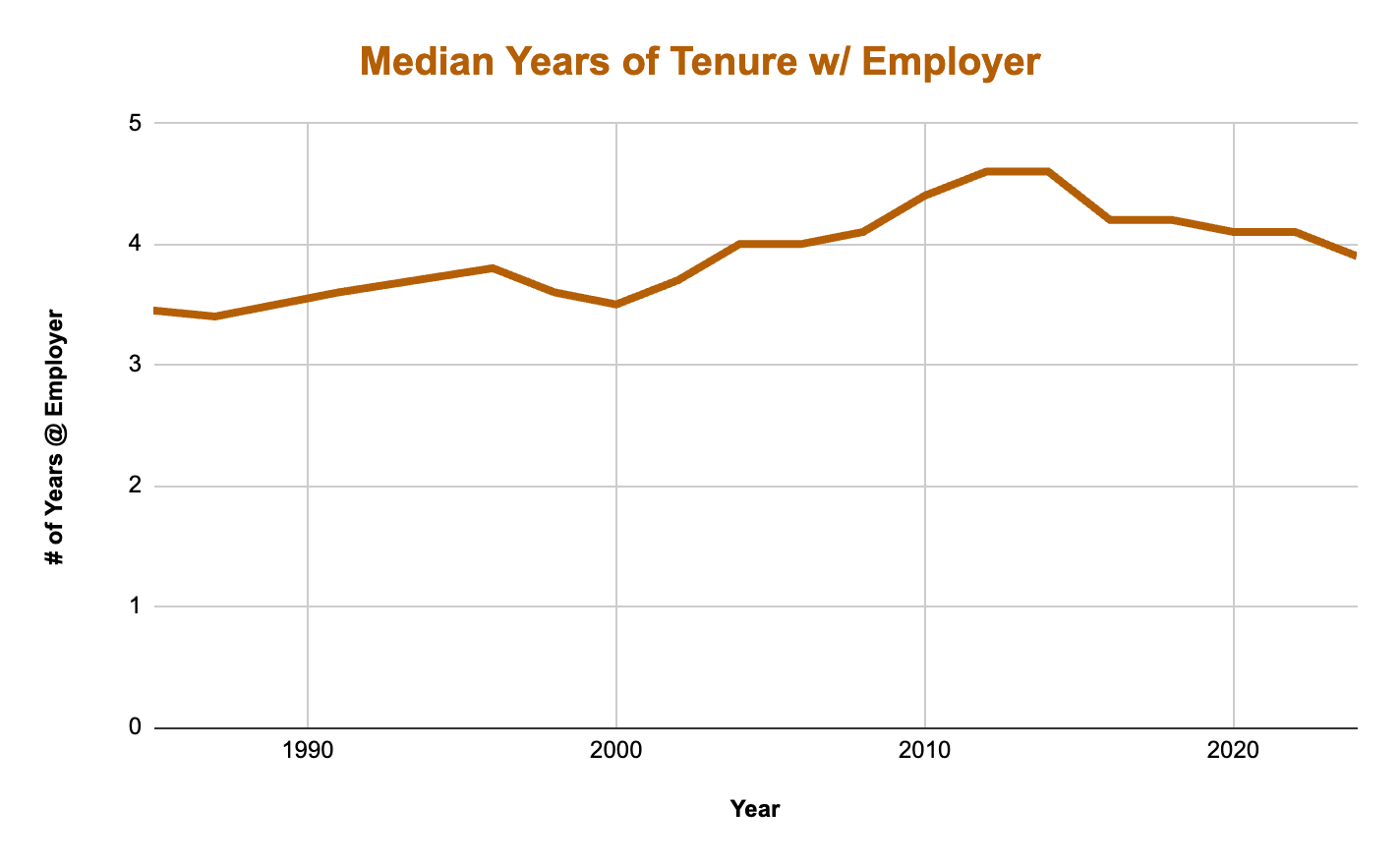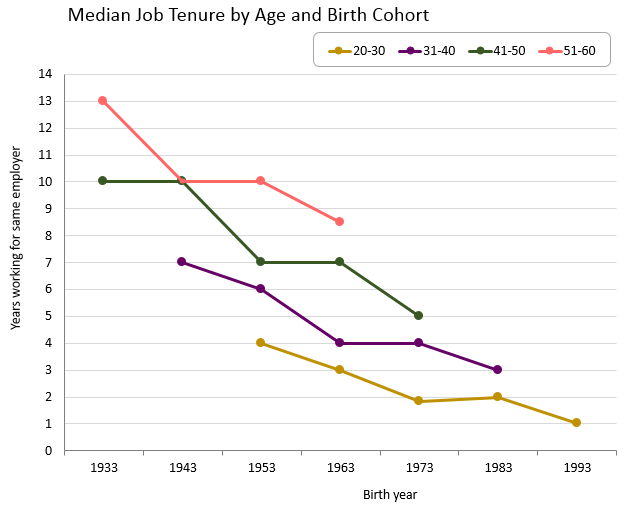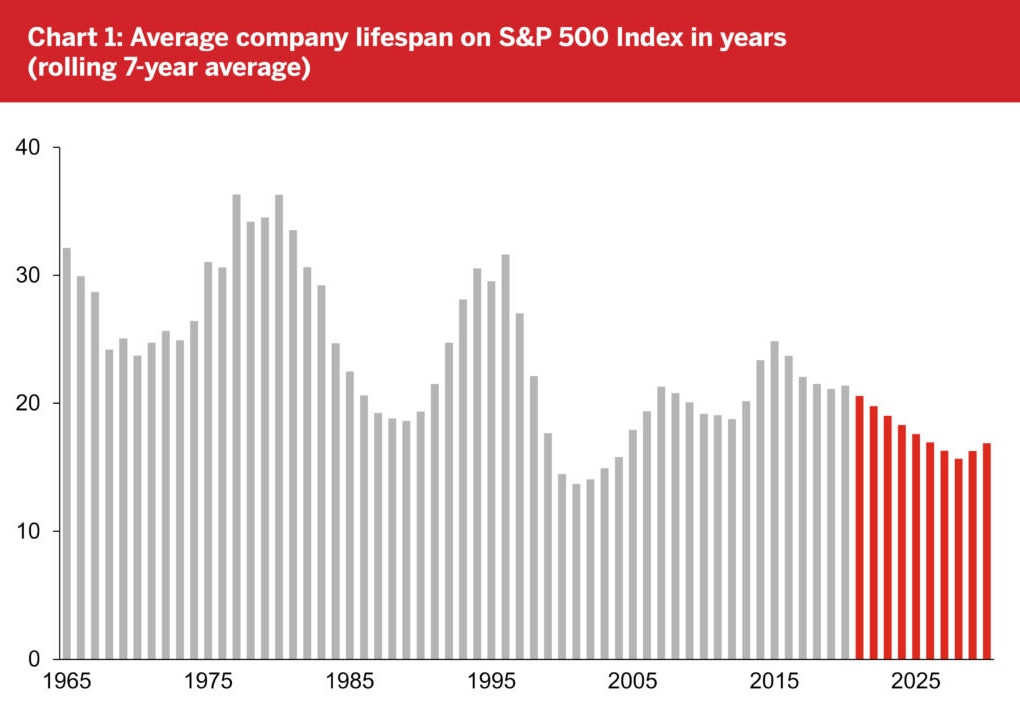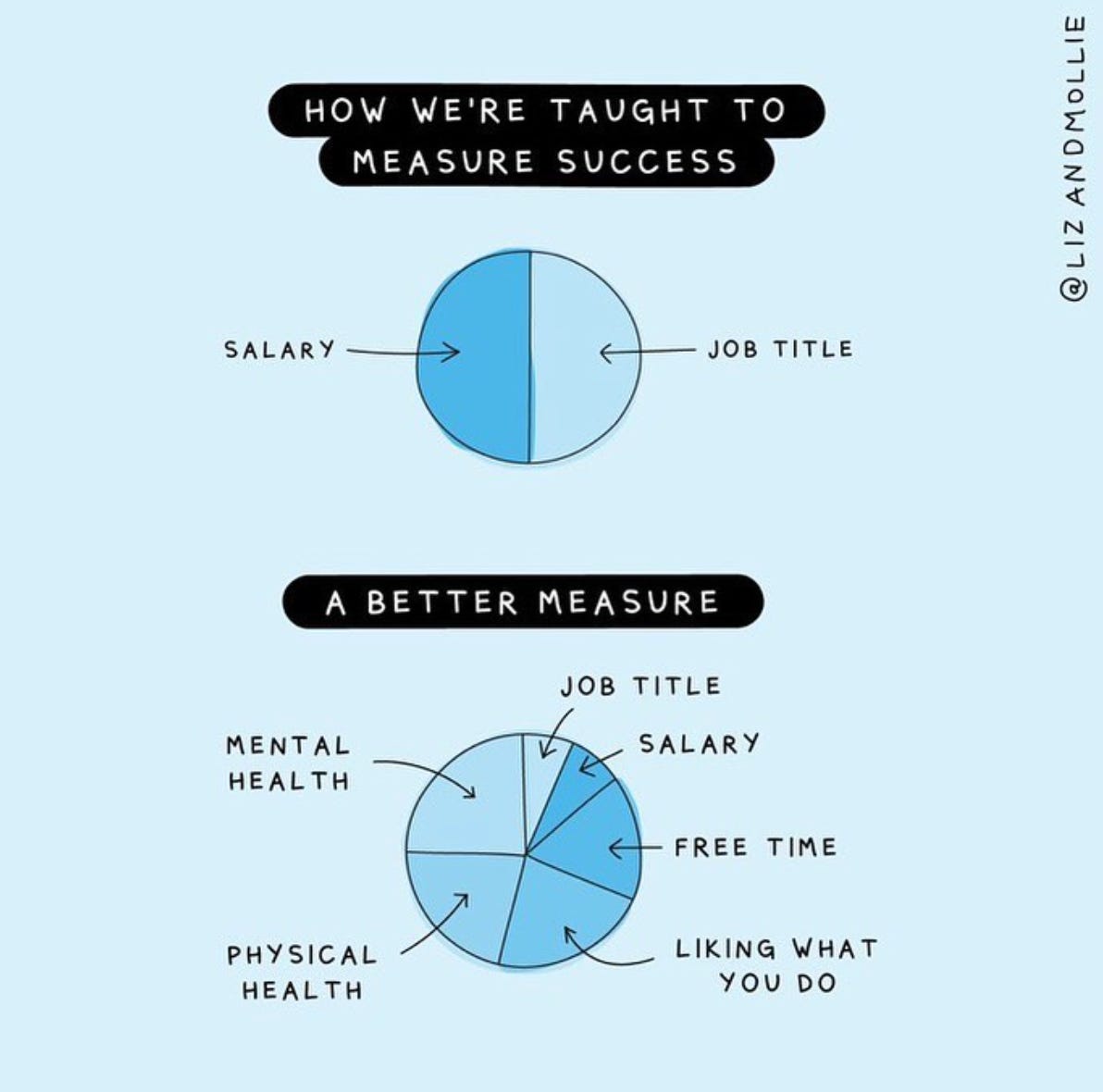Sometimes “staying where you are” professionally is actually the right move, even when the “greener grass” beckons…
I absolutely loathe being sick.
I’m the sort of person that rarely gets sick, but when I do it’s as if I’ve been hit by a truckload of bricks. My wife regularly teases me that I am an excellent poster child of the mythical “man cold”. Over this past holiday break, I (and most of my family) unfortunately got to spend ~3 days dealing with some kind of winter flu virus. On the 2nd day of illness I spent all but 4 hours in my bed experiencing aches, chills, high fever, and a litany of other joys. It was miserable.
There’s nothing like being ill that makes you appreciate the “normalcy” of relative good health. Simple things like being able to walk or breathe without discomfort suddenly seemed like freshly discovered joys. As the old adage goes, “you never know how good you really have it…”
I think that principle applies to quite a few areas in our lives including our careers. We often don’t remember or fully appreciate that our current situation is actually quite a good one. Almost everyone experiences the gravitational pull towards the “greener grass” on the other side of the proverbial meadow.

On the one hand, this isn’t necessarily a bad thing.
Most of us would likely consider ourselves ambitious people (I mean, you are currently reading an article about business advice!). If we didn’t always have some kind of an innate itch driving us to reach “our maximum potential” we would never take risks, try out for a new role, invent new ways of doing things, or keep climbing the professional leadership ladder. That internal fire propels our careers forward.
It’s what pushed me in high school to strive for straight A’s, and later pushed me to apply for highly competitive and demanding graduate programs, consulting roles, and to work for a high growth tech company (instead of just “settling” for a more laid back career track). Ambition can be a wonderful thing.
But recently, I’ve started to wonder if sometimes we take it a bit too far. To illustrate, check out this data on the average tenure people spend at a company…

At first glance, this chart doesn’t seem to be overly interesting. A few of the highlights from the data::
- Today (Jan 2025), the average employee in the USA spends ~3.9 years at an employer. This is down slightly from ~4.1 years back in Jan 2022, and is significantly down ~4.6 years in the early 2010’s (back when everyone was still recovering from the 2008 recession and job security was prized at a premium).
- You can tell that there have been times in the past (ex: the late 80’s and 90’s) where we tended to spend even less time at an employer than we do today.
Nothing too shocking in any of that. Intuitively it makes sense that people tend to stay longer with employers for job stability when the economy is bad (ex: the 2008 recession) or tend to stay with employers less often when the economy is doing great and opportunity abounds (ex: the dot.com boom of the early 90’s). Makes sense right?
But let’s take a step back and look at how our relationship with employers is changing over generations, and that’s when things get a little more intriguing…
Check out the chart below that shows this same “average job tenure” data, but this time is segmented by what year someone was born.

Source: Bureau of Labor Statistics
Look at how much less time each generation spends at their employer compared to the generations before! The decline from decade to decade is dramatic!
The problem with the first chart is that it only shows the average of all workers (young and old) and completely masks the truth that young people today (Millenials and Gen Z in particular) spend an incredibly short amount of time at a job before skipping to the next one.
I’ve seen this firsthand among my peers and young college graduates I interview. Oftentimes I’ll be scanning their resume and, at first glance, be impressed by the great companies and experiences they’ve had. But when I take a closer look I notice that a huge number of their professional experiences are extremely short. 1 year at XYZ company, 1.2 years at ABC company, and so forth… I’ve even seen stints as short as 5-6 months, which is what you’d normally expect to be the length of an internship, not a full-time position (and no, these people weren’t fired, they joined, were trained, and then simply left once a slightly better offer came along).
The stereotypical idea that Millenials (and Gen Z) are just a bunch of “job hoppers” isn’t completely fair, but it also isn’t without some truth either. I can understand why people take this path though. For someone who is ambitious, driven, and aspiring to reach their potential as fast as possible, why would you turn down a “better” opportunity the moment it presents itself?
“Job Hopping to the Top”
The “job hopper” strategy is very logical, especially in an era where company loyalty to employees also seems to be declining. There’s a reason job hopping is becoming so commonplace. There are entire blogs/newsletters written about how to pursue this strategy more effectively. Here’s essentially how it works:
- Workers (especially ambitious ones) are continually incentivized to keep pushing their compensation and job titles “up and to the right”. More money = more ability to chase your dreams
- You work/study hard and land a (hopefully) well-paying job at company XYZ
- The competitive marketplace notices that you now work at XYZ company with “such and such” a title
- Within ~1 year you start to get job offers from your network and/or headhunters (employee marketplace tools like LinkedIn, Indeed.com, and even social media have made talented employees easier to find than ever)
- You immediately seize the chance to jump for a similar / elevated role at X% pay increase and join our next company
- The cycle repeats (but this time from a higher base salary)

If you’re all about maximizing title and pay, this strategy makes a ton of sense. Of course you have to be somewhat careful not to jump too frequently, but the reality is that even the penalties for doing so are diminishing in this day and age. And it doesn’t hurt that companies do tend to pay more for “new employees” as opposed to compensating the employees they already have. This means workers are increasingly incentivized to look elsewhere for pay bumps as opposed to staying.
I’ve seen many friends and peers using this “job hopping” strategy to quickly ascend to great positions and huge paychecks, with fewer and fewer repercussions. The days of working up the ladder at the same company for 25+ years (like many of our parents and grandparents did) is rapidly going away.
I want to be clear that I don’t necessarily think that this is a bad thing. It’s certainly been a boon to workers (who usually get the short end of the stick when it comes to employer/employee power dynamics). Freedom of movement is generally a good thing in free market economies; and I’ve personally enjoyed knowing that I don’t have to work at any situation permanently in order to put food on the table for my family (a privilege I admit that not every single person enjoys, but is one that is increasingly common).
However, I also think that the new age of “job hopping” helps to explain why fewer and fewer of our institutions have the same influence and impact as they used to. Company life cycles are shorter than ever.

Source: 2021 Innosight Study on Company Lifespan
This isn’t too surprising when you think about it. How do you expect the organizational “magic” to stick around, when your best people have all left? That seems to be a macro problem we’re increasingly dealing with as a society.
Is the Grass Always Greener?
But I want to bring this back to my original point about being sick and not appreciating what you already have.
I’ve now worked at my current company for ~3.5 years. In a different day and age that would have still marked me as a rookie. In this new era of job tenure I’m now becoming known as one of the veterans at my company (especially given that I joined when my company was still a growth stage startup pre-IPO). I have relatively few coworkers who were here when I joined only 43 months ago.
As with many of you I regularly will get hit up by headhunters, LinkedIn messages from recruiters, or someone in my network with an opportunity to interview for a new role someplace else. Most of these roles offer elevated titles and/or pay increases. And to be honest some of them are tempting.
But for the past 18 months I’ve done something that I’ve never done before in my career: I turn down almost every single interview opportunity.
Here’s why: I really enjoy my current role and company! The product we make is interesting. My projects are intellectually stimulating. I have a wonderful team and thoroughly enjoy the people I work with. I also have a pretty great work/life balance that still requires me to work 40-50 hours a week, but is extremely flexible in allowing me to be present for my family’s needs (a critical thing when you have a spouse + 4 young kids at home). I genuinely wake up excited each day to go to work.
Deep down, I know that I am likely leaving some money on the table (at least in the short term).
The average “job switcher” generally makes between 5-15% more when they change companies, and this would likely apply to me as well (again, that’s not because I’m particularly special, but because I think that’s the reality of the market we live in).
But I think that staying in my current role/company for now is the best move I could make for my own personal happiness. And that is because the older I get, the more I realize that true career satisfaction stems from so much more than the superficial “job and salary” metrics we attach to it.
This short cartoon sums it up best:

Credit: Liz & Mollie
If I was to leave my current role now I would be gaining a short term boost to my “hopping” strategy (more money in the short term + a higher starting point for my next negotiation). But I would be sacrificing everything I listed above. Things that I already have.
There are also some major risks to leaving for a new role. How likely is it that my new boss will be better than my current one (who I love working with)? What would it mean to sacrifice the deep relationships and trust I’ve built up with other department heads in my company? What would it mean to have to re-learn a new industry/product all over again (just as I’ve begun to develop some expertise on my own)? I’ve seen plenty of friends leave for “greener pastures” only to call me a few months later and express some regrets about making the jump, despite the increased compensation.
Sometimes, I feel that these are all things (like health), that we are a little too quick to simply take for granted professionally. In an age, where more and more people are staying at a company for less and less time, it can be a smart strategy to be an outlier who stays longer. Zig when everyone else is zagging. Or as one of my mentors has told me, “always find a way to be rare…”
Oftentimes, the thing that may make us the happiest, may simply be the thing that we already have. As Oscar Wilde once said: “True contentment is not having everything, but in being satisfied with everything you have.”
Final Thoughts…
This isn’t to say that we should never change or never move up. I’m not naive enough to believe that I’ll be in my current situation forever. I’m certain that someday something will change. Either I’ll move up in my current company, or I’ll finally be so tempted by one of those external opportunities that I’ll leave for the next adventure.
(As a side note: I do think it’s healthy for everyone to interview ~1-2X per year. This not only to keep their interview skills sharp, but also to keep a constant pulse on what their market value is)
But sometimes the greatest opportunity you may have is simply enjoying your current circumstances. We don’t constantly need to be in job search mode or moving up. Sometimes you need to have a time and season of just allowing yourself to “bloom where you’re planted” for a while.
There’s a lot more to unpack here, but this is hopefully some food for thought as we all consider new opportunities in the coming year.
Happy 2025.
Like what you read? You may also enjoy reading about our “7 Year Framework” (when to find a new job)


